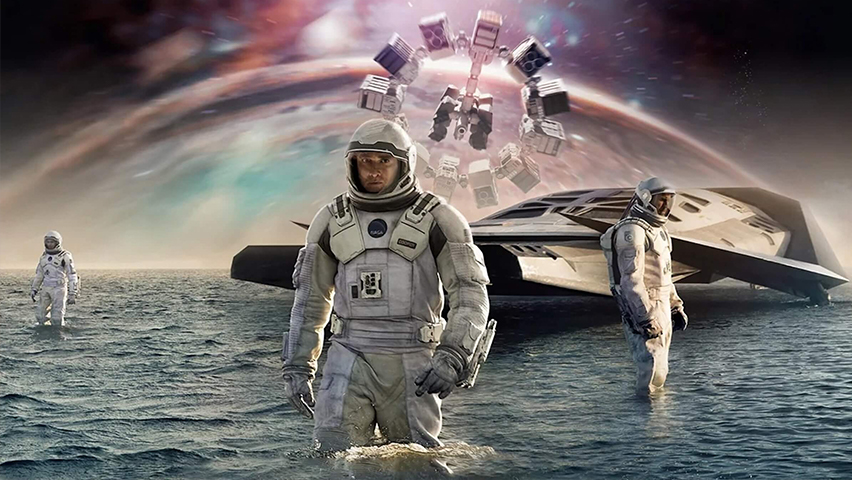
When people talk about movies that leave a lasting impression, film Interstellar often pops up in the conversation. Directed by Christopher Nolan, this sci-fi masterpiece combines science, emotion, and a sense of adventure that feels larger than life. It’s not just about space travel, it’s about humanity, love, and survival. The movie has sparked endless discussions since its release, making it a timeless reference for both casual viewers and science enthusiasts.
The Storyline That Grabs Attention
At its core, film Interstellar tells the story of Cooper, a former pilot turned farmer, who is chosen for a mission to save humanity. Earth is facing a global food crisis, dust storms are ravaging the planet, and the future looks grim. Cooper joins a team of astronauts traveling through a wormhole near Saturn in search of a new home for mankind. The plot might sound like typical science fiction, but Nolan presents it in a way that feels grounded and emotionally intense.
What sets this movie apart is the emotional pull. It’s not just about exploring galaxies, it’s about the connection between a father and his daughter. This balance between hard science and raw human emotion is why film Interstellar resonates so deeply with audiences.
The Science Behind the Movie
One of the most fascinating aspects of film Interstellar is its scientific accuracy. Nolan worked with physicist Kip Thorne to make sure that concepts like black holes, wormholes, and time dilation were represented as close to real physics as possible. The stunning visual of the black hole Gargantua is not just CGI magic, it’s based on real equations and calculations.
The idea of time passing differently near a black hole is central to the film’s drama. When Cooper and his team land on Miller’s planet, they experience hours while years pass on Earth. This concept of relativity is beautifully translated on screen, making audiences feel the weight of every decision the characters make. For many viewers, film Interstellar became an introduction to complex theories of space and time in a way that feels thrilling rather than confusing.
Characters That Feel Real
A great movie is always powered by strong characters, and film Interstellar delivers on this front. Matthew McConaughey as Cooper brings both toughness and vulnerability to the role. His chemistry with Mackenzie Foy and later Jessica Chastain, who play his daughter Murphy at different ages, is the emotional heart of the story.
Anne Hathaway plays Amelia Brand, a scientist whose journey forces her to wrestle with both logic and emotion. Michael Caine as Professor Brand adds gravitas, while the presence of robots TARS and CASE brings humor and charm. Despite the futuristic setting, the characters feel relatable because their struggles mirror real human dilemmas, from parental sacrifice to the search for hope.
Visuals That Take Your Breath Away
When people recall film Interstellar, one of the first things they mention is the breathtaking cinematography. Hoyte van Hoytema’s work captures the vastness of space, the eeriness of alien planets, and the fragility of Earth. Every frame feels like a piece of art. From the icy landscapes of Dr. Mann’s planet to the spinning spaceship docking scene, the visuals stay etched in memory.
The IMAX experience added another layer, making audiences feel like they were part of the journey. Nolan’s insistence on practical effects whenever possible gave the movie a sense of realism that CGI-heavy films sometimes lack. Watching film Interstellar on a big screen is an experience that feels larger than life.
The Role of Music in the Journey
Hans Zimmer’s score deserves a special mention. The organ-heavy soundtrack of film Interstellar is both haunting and uplifting. It emphasizes silence when needed and swells with emotion during key scenes. Tracks like “Cornfield Chase” and “No Time for Caution” have become iconic in their own right.
Zimmer composed the music before even reading the script, focusing on the theme of a father and child. This approach explains why the score feels so emotionally connected to the film. Without the music, the journey through wormholes and galaxies would not have the same emotional punch.
Themes That Stay With You
At the heart of film Interstellar are themes that transcend science fiction. The story explores the idea of survival, not just as individuals but as a species. It also digs deep into the concept of love as a force that can bridge space and time. Amelia Brand’s dialogue about love being something beyond our understanding has sparked endless debates but also adds depth to the narrative.
The relationship between Cooper and Murphy stands as the soul of the movie. Their bond represents both pain and hope, reminding audiences that even in the face of cosmic challenges, human connections remain the most powerful force.
Impact on Pop Culture
Since its release, film Interstellar has grown into a cultural landmark. Quotes from the movie, such as “Do not go gentle into that good night,” have become instantly recognizable. The black hole visualization inspired scientific discussions and even academic papers. Fans often rewatch the film to catch details they missed the first time.
The influence of film Interstellar extends beyond entertainment. It has inspired interest in astronomy and physics among young audiences. Many viewers credit the movie for sparking their curiosity about space exploration and humanity’s future beyond Earth.
The Emotional Core
What makes film Interstellar unforgettable is its emotional resonance. The final reunion between Cooper and an aged Murphy is heartbreaking and fulfilling at the same time. It reminds us that while science pushes the story forward, emotion gives it meaning. For many, the tears shed during this scene are proof of how deeply the film connects with the audience.
The movie constantly reminds viewers that behind the grandeur of space travel lies the vulnerability of human emotion. This combination of science and heart is what sets film Interstellar apart from other sci-fi films.
Why People Keep Talking About It
Years after its release, film Interstellar is still a frequent topic of discussion. People debate the science, analyze the symbolism, and share personal interpretations. Some see it as a story of survival, others focus on the father-daughter bond, and some view it as a philosophical meditation on love and time.
This open-endedness is part of Nolan’s brilliance. He doesn’t hand everything to the audience, instead he invites them to think and feel. That’s why people continue to revisit the movie, finding new layers each time






